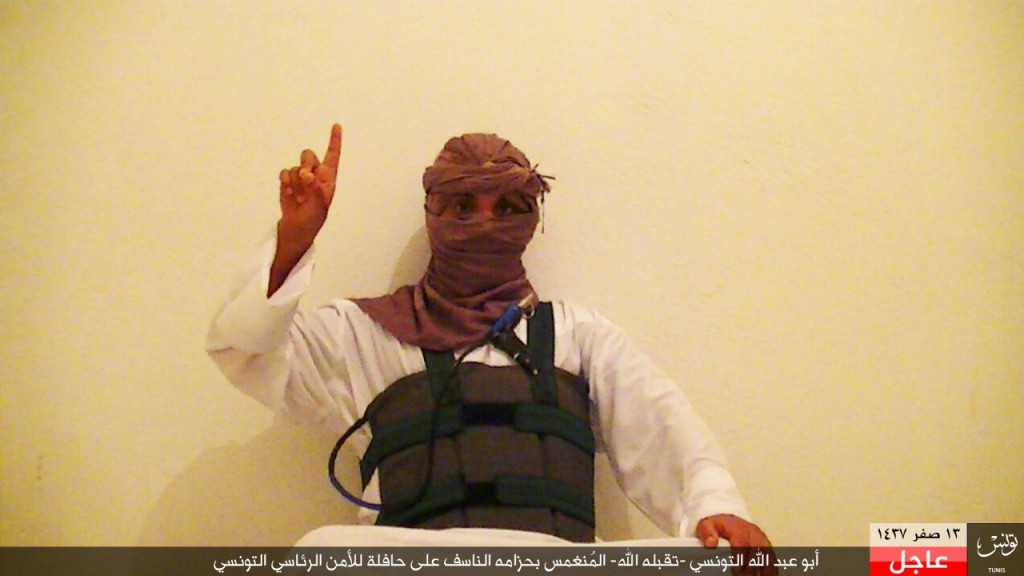The Islamic State claims that Abu Abdullah al Tunisi, pictured here, was the suicide bomber responsible for yesterday’s attack in Tunisia.
The Islamic State has issued a statement claiming responsibility for a suicide bombing that targeted Tunisian presidential guards yesterday. At least 12 people were killed, according to initial casualty reports. The jihadist group also released a photo of the terrorist it says carried out the operation.
The statement says that the bombing resulted in the “destruction of dozens from the presidential security in the heart of Tunisia’s capital.” The Islamic State claims that “God enabled the knight from the knights of martyrdom, the martyr brother Abu Abdullah al Tunisi from the commandos” to carry out the assault on a “bus carrying some members of the presidential security on Mahmoud V street in the center of Tunis.” The message adds that the bombing was intended to show the “Tunisian tyrants that it is not safe for them.”
“He arrived at his objective at dawn, detonating his explosive belt [and] killing nearly two dozen,” the statement reads. The Tunisian government says the number of people killed is actually half the figure claimed by the Islamic State.
According to the BBC, the explosion happened at a bus stop used by the presidential guards to switch staff. As a result of the suicide bombing, Tunisian President Beji Caid Essebsi has issued a 30-day state of emergency in the country and imposed a curfew in the capital.
The attack is the third claimed by the Islamic State in Tunisia. In June, one of the “caliphate’s” terrorists killed 38 people on a beach in Sousse, Tunisia.
In March, the Islamic State claimed responsibility for an assault on the Bardo Museum, which left more than 20 people, mainly foreign tourists, dead. Tunisian authorities have disputed the Islamic State’s claim, saying that the Uqba bin Nafi Battalion, a branch of al Qaeda in the Islamic Maghreb (AQIM), planned the operation.
The Uqba bin Nafi Battalion has been behind several attacks in the North African country, including one last month on Tunisian soldiers near Kasserine. Nearly two months earlier, the battalion killed a customs agent in the Bouchebke area of Tunisia. In addition, the group killed four security officers near the Algerian border earlier this year. The Uqba bin Nafi Battalion’s deadliest attack on the Tunisian military happened in the Mount Chaambi region last July, an incident that left 15 soldiers dead and 20 others wounded.
The Islamic State has been building up its presence in the country, poaching from AQIM’s network in North Africa. Groups like Ansar al Sharia Tunisia (AST) and the Uqba bin Nafi Battalion have seen defections to the Islamic State, but remain loyal to al Qaeda. Many Tunisian nationals have traveled to Syria to fight with jihadist groups, including the Islamic State. According to the BBC, almost 3,000 Tunisians are fighting in Iraq and Syria.
Tunisia has arrested dozens of jihadists this year. Last month, seven extremists, who were running a recruiting cell for militants traveling to Syria, were arrested in the northeastern province of Nabeul. In March, more than 30 jihadists, working in four different cells, were arrested in Kairouan. In February, 32 others were arrested and accused of planning “spectacular attacks” in the country. Additionally, an arms cache was found near the border with Libya in March, and another was discovered in Sidi Bouzid in April.








